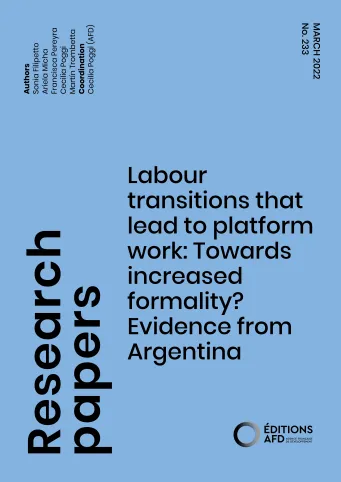Share the page
Labour transitions that lead to platform work: Towards increased formality? Evidence from Argentina
Published on

The recent growth of the platform economy as a tool for labour exchanges has brought about concerns on the overall quality of jobs created. As labour platforms leave a digital trace, this paper assesses whether platforms can help to increase registered labour in contexts of extended informality as the one for Argentina, asking what does formalization via registration - if any - actually imply for workers and how do they perceive it. The article inspects three on-demand occupations in the Buenos Aires Metropolitan Area: private passengers’ transportation (Uber), domestic work (Zolvers) and home repair services (Home Solution). The main results show that platforms “formalization effect” is dependent on several factors: a platform’s business model, or the company’s interest and need to promote or encourage such process; the pre-existing occupational dynamics in terms of formalization; and general labour market conditions. In the context of an Argentine labour market harmed by a prolongued recession, most transitions to formality via the platform occur to previously unemployed workers who join them.
Useful Information
-
Authors
-
Sonia FILIPETTO, Ariela MICHA, Francisca PEREYRA, Martín TROMBETTA, Cecilia POGGI
-
Coordinators
-
Edition
-
233
-
Number of pages
-
39
-
ISSN
-
2492 - 2846
-
Collection
-
Research Papers
